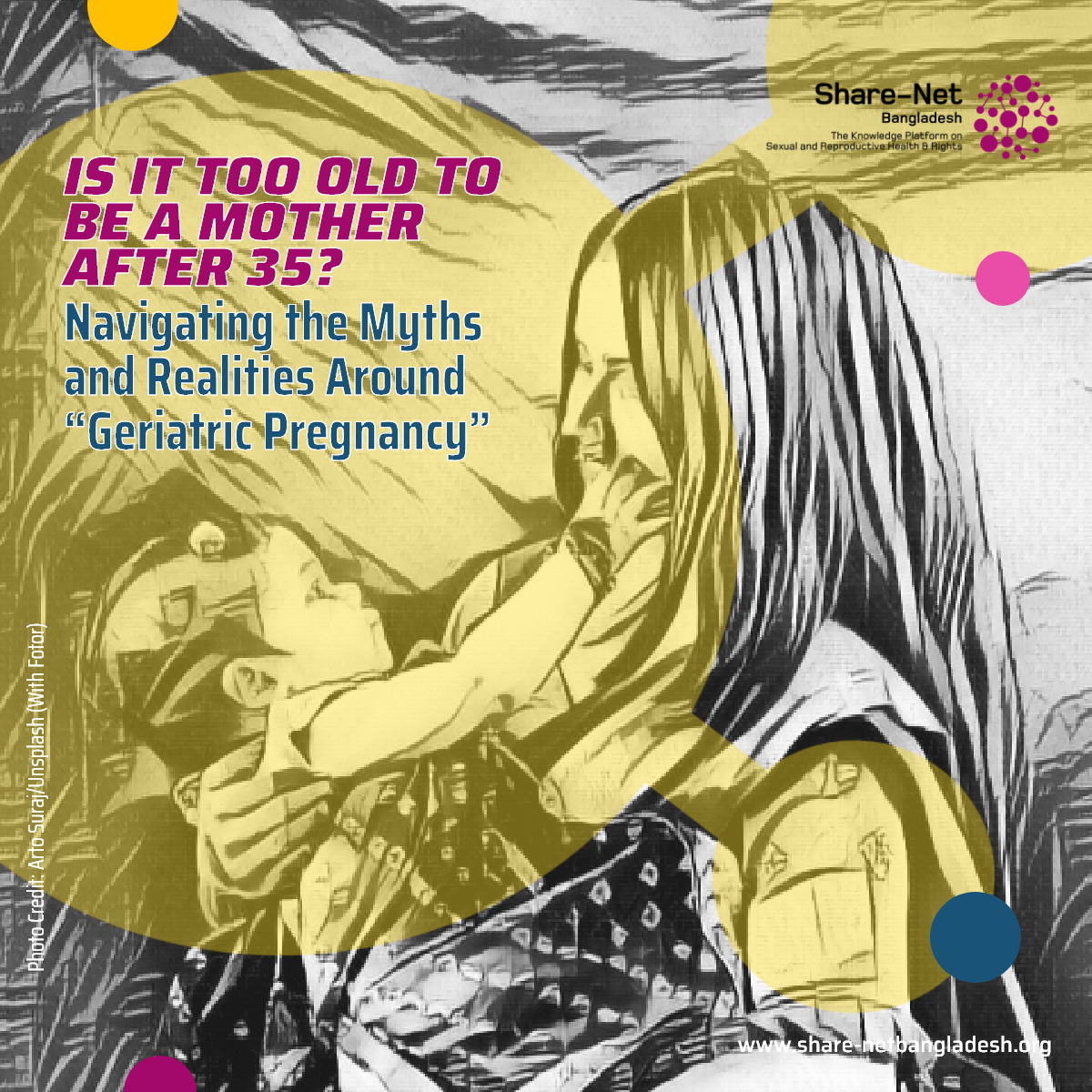Is It Too Old To Be a Mother After 35? Navigating The Myths And Realities Around “Geriatric Pregnancy”
In Bangladesh and beyond, a woman choosing to become pregnant after the age of 35 often finds herself walking a tightrope of stigma, medical caution, and unsolicited opinions. Referred to in medical terms as a “geriatric pregnancy”, the label itself is enough to raise eyebrows and anxiety — even though it merely denotes pregnancy at 35 or older.
But does age 35 mark a biological deadline? Or is it a social construct shaped by fear and tradition?
Despite genuine medical risks—like gestational diabetes, high blood pressure, or chromosomal abnormalities—experts say these risks don’t automatically define every late-age pregnancy. Thanks to advances in maternal health care, women in their late 30s and 40s are now navigating pregnancy more safely than ever before.
“I conceived at 38,” shares entrepreneur and mother of three, Nurjahan Ajanee. “Except for one very discouraging doctor, everyone cheered me on. It was a routine, full-term pregnancy.”
According to the Cleveland Clinic, women between 35 and 40 still have a higher chance of having a healthy baby than having a miscarriage. Technologies like prenatal screening, assisted reproductive treatment (ART), and in-vitro fertilisation (IVF) have further broadened the possibilities for older women.
Yet, social attitudes haven’t caught up. In many Bangladeshi households, pregnancy past 30 is seen as “too late”, often laced with pity or cautionary tales. Late pregnancy is frequently dismissed as selfish, risky, or biologically “unnatural”.
These biases are rooted not just in culture, but also in the country’s family planning narratives that promote early marriage and early motherhood. For women who choose to delay childbearing due to education, career, or financial stability, the path is often laced with judgement.
“I believe that when a mother has achieved good things in life and harbours no inhibitions, the child thrives,” says Mustahena Nawar, who had her third child at 40.
Indeed, lived experience tells a different story—one that values maturity, emotional readiness, and informed decision-making. Still, a critical question must be asked: Is it wise—or even feasible—for everyone to delay pregnancy?
While many urban, educated women may have access to fertility treatments and quality care, rural or low-income women often don’t. Delaying pregnancy also doesn’t guarantee success. Fertility declines with age, and ART procedures are expensive and emotionally demanding.
The issue, at its core, ties back to Sexual and Reproductive Health and Rights (SRHR). Every woman should have the right to decide when and whether to have children, without fear, shame, or structural barriers. But this right must be accompanied by access to healthcare, information, and affordable fertility support.
The stigma around late-age pregnancy isn’t just outdated—it’s unfair. It’s time to replace the whispers with support and fear with facts. Because whether a woman chooses to be a mother at 25 or 45, the decision should be hers alone.
Source: The Daily Star
Photo Credit: Arto Suraj/Unsplash
Illustrated with: Fotor.ai


